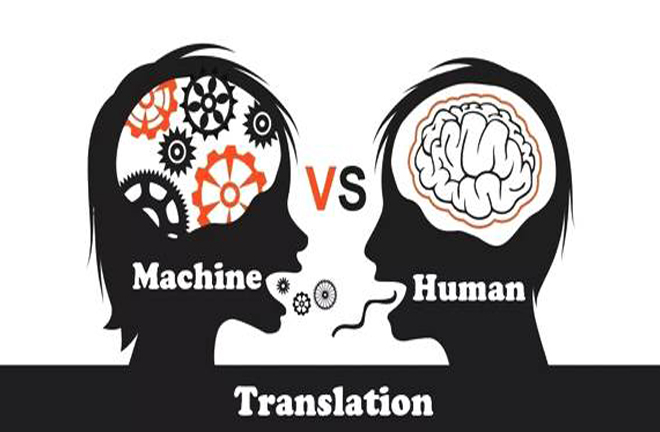Humans still have the edge over machine translation

Human translation will not be replaced by machine translation in the short term. Photo: IFENG
As our main mode of expression and communication, language is the medium in which people exchange ideas, and it is closely related to politics, economics, science and technology, culture and other social aspects. With the surge of artificial intelligence (AI) and the pervasiveness of machine translation, foreign language learners and translators should actively adapt to changes, promote the application of new technologies such as man-machine coordination and improve the efficiency and professional standards of translation.
Yang Hongying, a professor from the School of Tourism and the Research Institute of Human Geography at Xi’an International Studies University, said that as a language highlighting parataxis, Chinese is quite different from English with its hypotaxis in form, logic and precise syntactic structure. Therefore, since machine translation cannot differentiate sense-groups accurately, it might transfer the characteristics of hypotaxis to the language emphasizing parataxis or the other way around.
In this regard, human translation has an advantage. Linguistic communication is not a mere scientific problem. Wu Gang, deputy dean of the Graduate Institute of Interpretation and Translation at Shanghai International Studies University, said that on the micro level, communication among different languages is not mere information exchange. It also refers to many sophisticated problems. For instance, the addressor’s delicate change in emotion and attitude can influence the effect of communication in situations related to politics and law.
Wu added that in the age of science and technology, language learners should transform their ideas, keep an active and open mind, fully apply new methods, adapt to new working concepts, improve their knowledge and skill to a higher level, and work in complement with AI so as to improve their ability to survive in the face of technological change.
Wen Xiuying, a professor from the Department of Foreign Languages at Tianjin University of Finance and Economics, said that machine translation still faces many insurmountable difficulties. AI cannot understand small things that are important to humans, for example, subtle changes of facial expressions or differences between similar emotions such as happiness, relaxation, gratification and satisfaction. Translation, particularly in the fields of literature and of film and television, needs to capture characters’ feelings and emotions in addition to the transformation of language. In this sense, machine translation cannot completely replace human translation in the short term or offer creative services in fields like business negotiation, tourism, literature and movie dubbing. Therefore, it is too early to fear that human translation will be replaced by machine translation.
Wang Wenhua, a professor from the School of Foreign Studies at the University of International Relations, said that with the elevation of China’s international status, many foreigners have become interested in China’s stories, which offers us a rare opportunity. Learning foreign languages is beneficial for us, as it allows us to tell China’s stories. Telling China’s stories also requires us to respect cultural differences based on a sufficient understanding of Chinese traditional culture, embrace different ideas with a global outlook, establish an international discourse system to connect China and the world, and better promote the communication between China and the world.
(edited by SU XUAN)

 PRINT
PRINT CLOSE
CLOSE